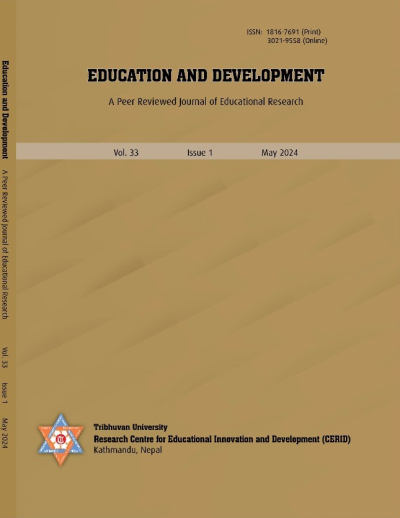Teachers’ Knowledge-Sharing Practices Among Their Colleagues in Community Schools in Nepal: A Phenomenological Case Study
DOI:
https://doi.org/10.3126/ed.v33i1.66597Keywords:
collaborative community, cultural-bias, knowledge-sharing, school, teacherAbstract
This study explores teachers’ knowledge-sharing practices among their colleagues in two community schools in Nepal and the hindrances of a knowledge-sharing culture in school. Utilizing and employing the phenomenological case study design, the information was collected using purposive sampling from two permanent school teachers, one female and one male. In- depth interview and observation were used for collecting data, whereas thematic analysis was followed to analyze the information by transcribing, coding, comparing, and grouping the data. The findings show that the participants’ academic qualification and training increase collaborative knowledge sharing culture. However, cultural biases, workload burdens, and lack of information and communication technology (ICT) infrastructure and weak practices of developing, searching, and sharing knowledge among the colleagues in the school were identified as the pitfalls. The study suggests that an institutional and leadership proactive role is needed to control and enable the environment to develop a knowledge-sharing mechanism and collaborative community.
Downloads
Downloads
Published
How to Cite
Issue
Section
License
Copyright (c) 2024 Author

This work is licensed under a Creative Commons Attribution-NonCommercial 4.0 International License.
CC BY-NC 4.0. This license requires that reusers give credit to the creator. It allows reusers to distribute, remix, adapt, and build upon the material in any medium or format, for noncommercial purposes only.




